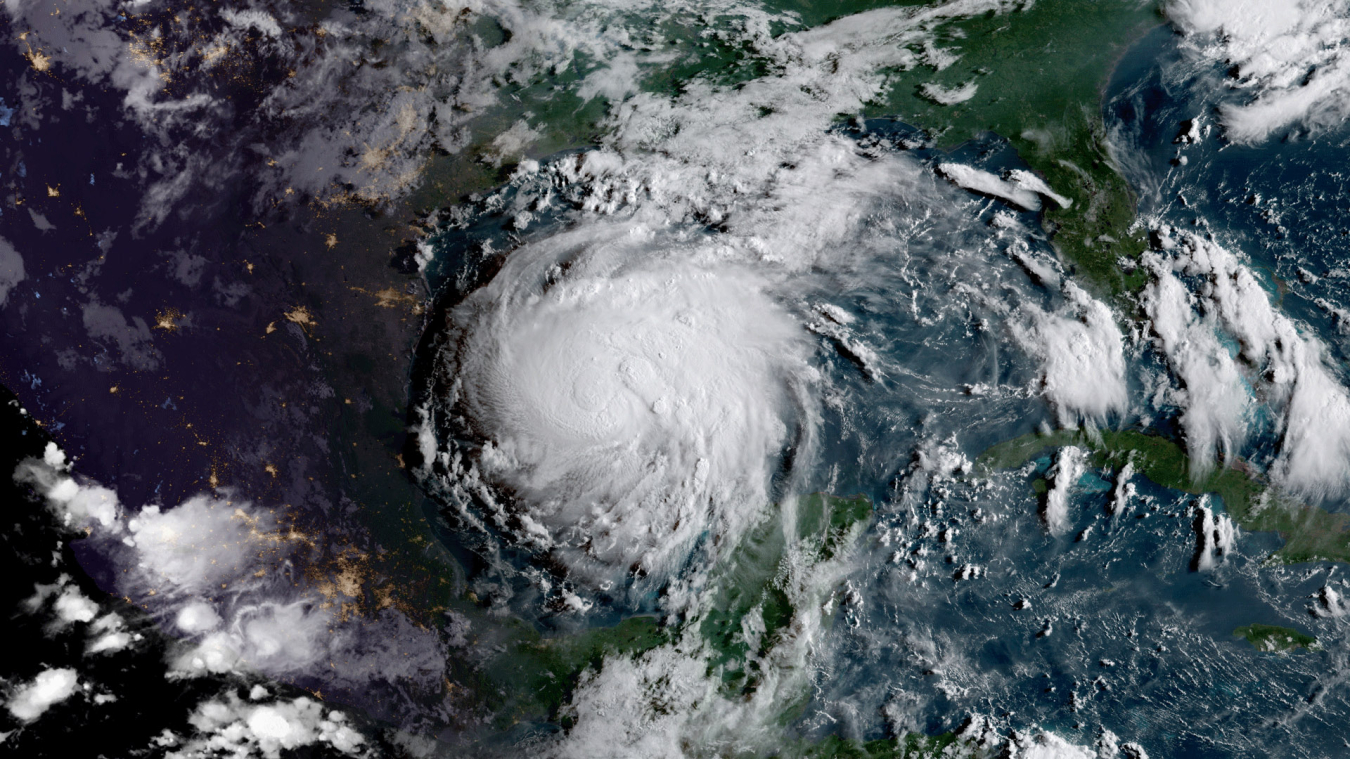The impacts of Hurricane Harvey were widespread. The Strategic Petroleum Reserve stepped in to mitigate the effects of the hurricane on refiners.
Office of Cybersecurity, Energy Security, and Emergency Response
October 5, 2017
Photo Courtesy of NASA
For days before it slammed the Texas coast, weather experts warned that Hurricane Harvey would be a major—perhaps catastrophic—storm. They were right. When Harvey made landfall on the night of August 25, it was a Category 4 storm—the strongest hurricane to impact Texas in more than 50 years and the first Category 4 storm to strike the United States since Hurricane Charley hit Florida in 2004.
Meteorologists also predicted that Harvey would meander over the Houston area for days and cause massive flooding. Again, they were right. Harvey dropped so much rain that the city of Houston temporarily sank two centimeters.
The impacts of Hurricane Harvey were widespread. And at one point, much of the Gulf region’s oil refining capability was shut down, resulting in fuel shortages.
Following the hurricane, Secretary of Energy Rick Perry authorized the Strategic Petroleum Reserve (SPR) to establish exchange agreements with affected refiners who requested emergency crude from the Reserve. Exchange agreements (similar to bank loans) are designed to address short-term, emergency supply disruptions to a refiner's normal operations. Exchange agreements provide for a loan of crude oil to be repaid, in kind, within a certain date, in exchange for an equal or greater volume of petroleum product, cash equivalent, or some combination of the two (similar to interest) as specified in an exchange contract.
Though Hurricane Harvey prompted the evacuation of some SPR personnel, the Reserve continued to operate under emergency conditions and supplied much-needed oil to refiners. By September 28, a total of 5 million barrels of oil from the SPR had been delivered to Gulf Coast refineries, helping to continue their processing operations and prevent further supply disruptions.
This wasn’t the first time the SPR stepped in to respond to disruptions from a natural disaster. In 2012, the Reserve exchanged 1 million barrels with Marathon Petroleum Company to offset the oil production shutdown in the Gulf of Mexico, as a result of Hurricane Isaac. In fall 2008, the SPR delivered more than 5 million barrels of oil to five companies whose normal supplies had been interrupted by Hurricanes Gustav and Ike. Following Hurricane Katrina in 2005, the SPR loaned 9.8 million barrels and sold another 11 million barrels to damaged offshore oil production facilities, providing 20.8 million barrels of crude oil to U.S. refiners affected by the Hurricane Katrina.
Hurricane Harvey was a historic catastrophic storm that prompted a massive coordinated federal government response. And, as they’ve done in the past, the dedicated people who work for the SPR did their part and played a critical role in that effort.

